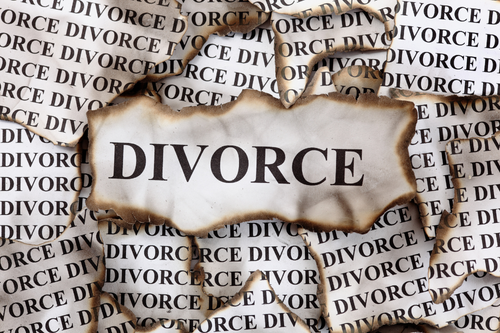How do I get Parental Responsibility for my Child?
 As matrimonial solicitors, we are well-rehearsed in legal parental rights and responsibilities. The issue of parental responsibility often comes up during the breakdown of a relationship where there are children involved and arrangements for them need to be made as a result of the divorce or separation. So, what is parental responsibility and how do you obtain it for your child?
As matrimonial solicitors, we are well-rehearsed in legal parental rights and responsibilities. The issue of parental responsibility often comes up during the breakdown of a relationship where there are children involved and arrangements for them need to be made as a result of the divorce or separation. So, what is parental responsibility and how do you obtain it for your child?
What is Parental Responsibility?
All mothers and most fathers have legal rights and responsibilities as a parent which are known as ‘parental responsibility’. If you have parental responsibility, your most important role is not only to provide a home for the child and protect and maintain the child, but also to discipline the child, choose and provide for the child’s education, agree to the child’s medical treatment, name the child and agree to any change of name, and look after the child’s property. Regardless of whether they have parental responsibility or not, parents must also ensure that their child is supported financially.
How do I get Parental Responsibility?
A mother automatically has parental responsibility for her child from birth. But being the father of a child does not automatically mean that you have parental responsibility. For example, if a father is not married to the mother and is not registered on a child's birth certificate, he will not automatically have parental responsibility.
If you are a parent who does not already have parental responsibility, it is possible to apply to the court to make a Parental Responsibility Order.
Parental Responsibility Agreements & Court Orders
If you happen to be a father and you do not have parental responsibility for your child and wish to obtain it, you can fill in a parental responsibility agreement. However, this must be in agreement of the mother. This agreement can then be taken to the local family court and signed and witnessed. But what if the mother doesn’t agree?
This is where it is advisable to consult a solicitor who can act on your behalf and guide you through the process of applying for a court order, so that you can successfully obtain parental responsibility for your child. In the event of a separation, you may also wish to apply for a Child Arrangements Order if you are unable to agree on arrangements such as who the child will live with, or how much time they will spend with the other parent, for example.
Advice and Support from Matrimonial Solicitors
Here at Vines Legal, we’ve got extensive knowledge and experience in applying for and obtaining parental responsibility, as well as years of experience in helping our clients through the process of separation and divorce. If you are considering a separation, or going through a divorce, and want to ensure that arrangements regarding your children are decided upon as smoothly and amicably as possibly, please contact us on 01246 555610 for a free initial consultation. We’d be happy to explain all of the options available to you in a friendly, professional manner.
By Vines Legal on 19 Mar 2023
Staff Spotlight on Vines’ Paralegals Catrin Jones & Hannah Taylor
 In our latest staff spotlight article, we’re focussing on our talented pair of paralegals Catrin Jones and Hannah Taylor. As a small team, the work that Catrin and Hannah do for Vines Legal, as well as the valuable support they give our matrimonial solicitors, is absolutely integral to the success of the business. So, lets find out more about them, where their passions lie, and the interests that they hope will shape their careers in the future.
In our latest staff spotlight article, we’re focussing on our talented pair of paralegals Catrin Jones and Hannah Taylor. As a small team, the work that Catrin and Hannah do for Vines Legal, as well as the valuable support they give our matrimonial solicitors, is absolutely integral to the success of the business. So, lets find out more about them, where their passions lie, and the interests that they hope will shape their careers in the future.
After obtaining a First-Class Honours Degree in Law from the University of Derby, Catrin is now studying the Legal Practice Course combined with Masters of Law, part time, alongside her work for the firm. Catrin aims to complete her studies and begin her Training Contract in 2023. Catrin is a Paralegal to Director Claire Clark and Hannah is a Paralegal to our solicitor Chloe Payne; they both provide support with their cases and administrative tasks. Hannah has a First-Class Honours Degree from the University of Derby, where she was awarded the Dean’s Award for Academic Excellence. Alongside her work for the company, Hannah is studying the Legal Practice Course combined with Masters of Law.
The Drive to Make a Difference
Both Catrin and Hannah have chosen to specialise in family law since graduating from university and particularly enjoy seeing both the progress and growth in the client during the process. As a source of support and advice, Catrin and Hannah enjoy dealing with individuals and getting to know clients on a personal level.
Catrin says: “If I had to pinpoint a significant time in my life where my interest in matrimonial law originated, it would have to be when I volunteered in a free legal advice centre specialising in family law during my undergraduate studies at the University of Derby. I found it very interesting and enjoyed learning the practical side of the theory we were taught. I particularly enjoyed the client contact and felt our advice made a difference to people’s families and lives.”
“My interest was also sparked during my undergraduate degree,” says Hannah. A family law module gave me a thirst for further practical knowledge and led to me volunteering with citizens advice where I experienced the more personal side of family law. I enjoyed the feeling of helping and making a difference to people during a time when they are at their most stressed and overwhelmed.”
Thoughts on Potential Reforms to Family Law
With regard to potential upcoming reforms surrounding family law, Catrin and Hannah are both interested in the potential impact the Transparency Pilot could have on the family courts. A perceived lack of transparency and accountability in the existing system has driven planned changes for UK family court proceedings, namely The Transparency Pilot, a UK government-initiated scheme which was launched in January this year.
Its aim is to allow ‘pilot reporters’, including particular accredited journalists and legal bloggers, to report on cases heard in the family court. Although it is subject to strict anonymity rules, there is some controversy surrounding whether the public should be able to access these private matters.
Getting the Best Outcomes for Clients
“Hannah and I support the fee earners in a number of matrimonial financial cases,” says Catrin. “One thing we are always mindful of is the importance of attempting to settle matters where the cost of court proceedings would outweigh the benefit to the parties, or significantly diminish the resources available to the parties at conclusion. Therefore, we always advise clients to be open minded to settlement offers, engage in voluntary negotiations, and attend mediation where appropriate.”
As for the future at Vines Legal, both Catrin and Hannah have positive prospects to qualify and progress their careers with the firm. Hannah says: “We have such an interest in the area; work is enjoyable, and we are motivated to gain the best results for our clients. This is an ethic which is fostered and valued at Vines.”
Contact Vines Legal for All Aspects of Matrimonial Law
To find out more about the Vines Legal team, including Catrin and Hannah, please visit https://www.vineslegal.co.uk/about-us/. Call today for your free initial, no obligation, consultation on 01246 555 610 for immediate, friendly and professional advice.
By Vines Legal on 3 Mar 2023
What Is Annulment or Voiding Of A Marriage & Who Does It Apply To?
 Annulment is a way to end a marriage by showing that it was never legally valid to begin with. It can be preferable to divorce depending on your circumstances.
Annulment is a way to end a marriage by showing that it was never legally valid to begin with. It can be preferable to divorce depending on your circumstances.
Many people who use annulment rather than divorce do so if they want to end their marriage immediately (in under a year), which cannot be done through divorce. Alternatively, they could have religious or personal beliefs that mean they want to avoid “divorce”.
However, not all marriages are eligible for annulment, so this isn’t an option to anyone who simply wants to avoid divorce within the first year. You can apply for annulment any time after a marriage, even years. But if you do wait for a long time to apply for annulment, you may be asked to explain why.
What Criteria Must Be Fulfilled To Apply For Annulment?
For a marriage to be annulled, you must prove one of the following 2 points:
- The marriage was never legally valid or is “void”
- The marriage was legally valid but meets one of the criteria that makes it “voidable”
Void Marriages – When Your Marriage Is Not Legally Valid
If your marriage was never valid in the first place, you can have it annulled and it will be considered to have never existed under law in the first place. However, you may require legal paperwork (a ‘decree of nullity’ or ‘nullity of marriage order’) to show that your marriage was void should you wish to remarry in the future.
Your marriage is void if:
- you’re closely related to the person you married
- one or both of you were under 16 at the time of marriage
- one of you was already married or in a civil partnership at the time of marriage
Voidable Marriages – When Your Marriage Was Legally Valid, But Can Be Void
Where a marriage was valid at the time of occurrence, but you wish to annul it now, you can use one of the following grounds:
- The Marriage was never consummated, i.e., you have not had sexual intercourse with your spouse since the wedding (this does not currently apply for same sex couples)
- You did not properly consent to the marriage, e.g., you were coerced or incapable of making the decision, such as intoxication with drugs or alcohol
- Your spouse had a sexually transmitted disease (STD) when you got married
- Your spouse was pregnant by someone else when you got married
- One spouse is in the process of transitioning to a different gender (more information here: https://www.gov.uk/apply-gender-recognition-certificate)
What Steps Do I Need To Take To Get My Marriage Annulled?
Firstly, you should apply to the Court for a nullity petition. This can be done any time after the marriage and there is no set amount of time that must pass before this can be done. You should complete your nullity petition with the help of a solicitor to ensure everything is correct before sending 2 copies to the Court. You should also retain a copy for yourself. There is a Court fee of £593 for filing the petition. If you are on benefits or low income, you may be able to get assistance with court fees.
After receiving your application, the Court will send you notice that it has been issued. Your spouse then has 14 days to respond to the petition, either accepting the annulment or disputing it. If they agree with the petition then you will apply to the Court for a conditional order (previously a decree nisi). This is an official document stating that the Court sees no reason why the marriage shouldn’t be annulled.
If your spouse disputes the application for annulment then you may need to go to Court and present your case in front of a judge in order to have the marriage annulled. A solicitor should be retained at this point to assist you in the Court proceedings and help to present your case effectively.
Once you have been issued with your conditional order, you have to wait for 6 weeks and then apply for your final order (previously a decree absolute). When you apply for the final order, the Court will check again that there is no reason why the marriage should not be annulled and, if they are happy with this, the final order will be issued, confirming that you and your spouse are no longer married. If your marriage was legally void, then this document will confirm that you were never legally married.
Here at Vines Legal, we are experts in divorce and annulment or marriage and can guide you through the appropriate steps required, ensuring that all matters are considered and all information required is presented to the Court. If you are considering divorce or think that your marriage can be annulled, then call us to book your FREE, no obligation initial consultation on 01246 555 610 and we can discuss your particular circumstances and the options available to you. You can also contact us on enquiries@vineslegal.co.uk or via our contact form here.
By Vines Legal on 13 Feb 2023
How do You Know when your Relationship is Over?
 Whether you’re married, in a civil partnership, or co-habiting, it can be incredibly difficult to know when your relationship is actually over, or if you’re simply going through a difficult time that with work and time, will pass. Of course, no one goes into a relationship contemplating failure of the partnership, but it’s hard to escape the fact that the current divorce rate in the UK in 2022 was estimated at 42%. As matrimonial lawyers, we obviously come across plenty of people who are at the end of their relationships. So, how do you know when your relationship is over?
Whether you’re married, in a civil partnership, or co-habiting, it can be incredibly difficult to know when your relationship is actually over, or if you’re simply going through a difficult time that with work and time, will pass. Of course, no one goes into a relationship contemplating failure of the partnership, but it’s hard to escape the fact that the current divorce rate in the UK in 2022 was estimated at 42%. As matrimonial lawyers, we obviously come across plenty of people who are at the end of their relationships. So, how do you know when your relationship is over?
Unsuccessful Mediation
The process of mediation can help you both to communicate in a respectable environment. Despite it being an upsetting and stressful time, mediation can really help to maintain communication between you and your spouse. But in the event that issues cannot be resolved, even after mediation, it may be time to accept that the relationship has, in fact, come to an end.
Receiving a Divorce Petition
It’s unlikely that being served with divorce papers will come completely out of the blue, but nevertheless, it will still be a shock. The divorce petition is the first formal step that marks the end of a relationship and the beginning of a divorce. As the receiver, it’s up to you to take the next step. Although it may be tempting to avoid dealing with it, ignoring it won’t make it go away. The sooner you accept that you will have to act, and decide on a course of action, the better. Whether your separation is amicable, mutual, or more complicated, acting quickly will make the whole process more manageable in the long run.
Do I Need to Prove my Relationship is Over?
Ever since the new “No Fault Divorce” law came into effect in April 2022, you are no longer required to provide a reason for the ending of your relationship and subsequent desire to get divorced. Previously you would have had to provide the grounds for divorce, which should come under one of the five facts including adultery, unreasonable behaviour, two years’ separation by consent, 5 years’ separation or desertion. This is no longer the case, and couples can even make a joint application for divorce.
What to Do if Your Relationship Has Come to an End
Unsurprisingly, our first piece of advice following the breakdown of a relationship is to seek legal representation. Taking advice from an experienced, reputable solicitor is extremely important at this stage. Not only will they have plenty of experience and knowledge regarding the legalities of the situation, but they’ll also be able to provide at least some of the advice and support needed to navigate this difficult time.
If you believe your relationship is over and wish to separate as a result, it’s understandable that you’ll have lots of questions regarding the process. Here at Vines Legal, we’re experts in matrimonial and family law and can assist you at every stage to help guide you through what can be a confusing and distressing time. For a free initial, no obligation consultation, please call us on 01246 555610 for immediate, friendly and professional advice.
By Vines Legal on 3 Feb 2023
Staff Spotlight on Vines Legal Director Claire Clark
 Vines Legal is exceptionally proud of the small but talented team of Family Law Solicitors that we’ve established over the years. In this month’s staff spotlight article, we’re talking to solicitor, and Vines’ newest Director, Claire Clark, about what drives her at work and why she loves what she does. Since joining Vines Legal back in 2010, Claire has played a key role in not only building the business a whole, but also in the training and development of newly qualified solicitors to further expand the team.
Vines Legal is exceptionally proud of the small but talented team of Family Law Solicitors that we’ve established over the years. In this month’s staff spotlight article, we’re talking to solicitor, and Vines’ newest Director, Claire Clark, about what drives her at work and why she loves what she does. Since joining Vines Legal back in 2010, Claire has played a key role in not only building the business a whole, but also in the training and development of newly qualified solicitors to further expand the team.
Passion for Family Law
“I am extremely passionate about Family Law for a variety of reasons,” says Claire. “My main motivation is the ability to make a difference in the lives of our clients, particularly when they are going through major life changes. There’s something very special about being able to help people. After studying family law in my LPC (Legal Practice Course) I found that I had a particular interest in this area and was invested in helping people through these significant crossroads in their lives.
You start by meeting a client at what is often a very vulnerable time in their life. I enjoy being able to follow and work with the client throughout their journey, watching them grow and change as a person along the way. As their case heads towards completion, they inevitably realise that a separation isn’t the end of things. It’s just a change and time to start a new path.”
A Force for Change
“If there was an aspect of the current law that I feel could be updated to reflect modern life it would be cohabitation law,” says Claire. “Given the sheer number of people in the UK that choose not to marry but are in cohabiting relationships instead, and in addition to the fact that this figure rises year on year, reform is definitely needed. Of course, we deal with many couples who choose to protect themselves with Cohabitation Agreements, but there’s no doubt that this area of the law is somewhat outdated and fails to reflect the realities of modern life.
The recent change in divorce law that came into effect last year was a huge shake up with the introduction of the new no-fault divorce option. It’s a sensible change that negates the need to place blame, therefore making the separation and divorce process more amicable where possible and benefitting any children involved as a result. By ending the need for separating couples to apportion blame for the breakdown of their marriage, they are now able to apply for divorce by simply stating their marriage has broken down irretrievably.”
Claire studied Law in Leeds followed by the Legal Practice Course at Nottingham Law School. She then completed her training contract with Vines Legal which reached its conclusion in December 2012, before progressing to become an Associate Solicitor, and now a Director. Specialising in the field of Family and Matrimonial Law, Claire is also a member of the Law Society Family Law Panel, dealing with both the married and the unmarried family.
Contact Vines Legal for All Aspects of Family Law
Find out more about the Vines Legal team, including Claire, please visit https://www.vineslegal.co.uk/about-us/. To contact Claire for a free initial, no obligation consultation, please email claire.clark@vineslegal.co.uk, or call us on 01246 555610 for immediate, friendly and professional advice.
By Vines Legal on 25 Jan 2023
Marriage not on the Cards? Here’s How to Protect Yourself with a Cohabitation Agreement
 The total number of cohabiting couples in the UK increased by a massive 144% between 1996 to 2021, from around 1.5 million to around 3.6 million. Trends do differ between opposite-sex and same-sex cohabiting couples, but in 2021, 22% of couples who lived together were cohabiting rather than married or in a civil partnership.
The total number of cohabiting couples in the UK increased by a massive 144% between 1996 to 2021, from around 1.5 million to around 3.6 million. Trends do differ between opposite-sex and same-sex cohabiting couples, but in 2021, 22% of couples who lived together were cohabiting rather than married or in a civil partnership.
Although there have been suggestions that the law may change with regard to unmarried partners and their rights to inherit after each other’s death, this has not yet been implemented. So, if marriage isn’t on the cards for you and your partner, how can you protect yourself?
Cohabitation Agreements
Put simply, a Cohabitation Agreement is a legal agreement that regulates the terms of you and your partner’s relationship, setting out what would happen to your assets, finances, and family if you were to separate. Of course, no one goes into sharing a home with someone consciously thinking it might end, but it’s definitely worth thinking about possible future scenarios, no matter how unlikely they may seem. For example, without an Agreement, one party to the relationship could be left with nothing in the event of a separation because sadly, the rights given to cohabitees remain substantially limited, especially in relation to matters involving children or property.
A Cohabitation Agreement may also be useful when a couple chooses to buy a home together, for example. It can be really useful to decide in advance who will pay certain bills or debts, or when drawing up what proportion of share in the property each person will hold.
What about ‘Common Law Marriage?’
Despite the common misconception, there is no such thing as a ‘common-law’ wife or husband; unmarried couples do not actually have any legal rights at all, regardless of how long they have been together. As the law currently stands in the UK, unmarried couples do not have the same rights as married couples. This includes an absence of maintenance rights, rights to their partner’s pension, and automatic inheritance; unless, of course, you have made a will.
As the law stands in England and Wales, there’s also no actual legal definition of a cohabitee. This means that the persons involved are still considered individuals in the eyes of the law, despite sharing a home.
Protecting your Future
If you are cohabiting, or thinking of cohabiting, and do not have such an agreement in place, it may be time to seek advice on how to protect yourself in the event of a separation. A Cohabitation Agreement will offer you the legal protection you would need should the worst happen, and can save an awful lot of time, money, and stress, in the long term. As a Cohabitation Agreement is essentially a legal document, it is advisable to have it drawn up by a solicitor.
If marriage is not on the cards for you and your partner, but you wish to protect yourself legally, we can help. Book in for a free consultation or call the office today on 01246 555 610 and we’ll explain everything you need to know about drafting a Cohabitation Agreement.
By Vines Legal on 29 Dec 2022
Understanding the Differences between Civil Partnership and Marriage
 Although Civil Partnerships may have been associated with same sex couples in the past, they’ve actually been legal for both male/female and same-sex couples since June 2018. At the time, it was recognised that men and women should be allowed to have one too, as opposed to just the single option of marriage as a legally binding union. British same-sex couples have been able to have Civil Partnerships since December 2005, and gay marriage was made legal in England, Scotland and Wales in 2013.
Although Civil Partnerships may have been associated with same sex couples in the past, they’ve actually been legal for both male/female and same-sex couples since June 2018. At the time, it was recognised that men and women should be allowed to have one too, as opposed to just the single option of marriage as a legally binding union. British same-sex couples have been able to have Civil Partnerships since December 2005, and gay marriage was made legal in England, Scotland and Wales in 2013.
So, even though both options are now legally available to all couples, why would someone choose to have a Civil Partnership rather than a marriage and what are the differences between them?
What is a Civil Partnership?
A Civil Partnership is a legal relationship that can be registered by two people who aren't related to each other. Once registered, it will give your relationship legal recognition, which in turn gives you added legal rights and responsibilities. A Civil Partnership can only be ended by applying to court to bring the partnership to an end legally, or if one person dies. In addition, you cannot apply to bring a Civil Partnership to an end until it has lasted for at least one year.
Civil Partnerships may be chosen over marriage if a couple prefers a modern alternative and may be appropriate where partners don’t want to be associated with the traditional religious and patriarchal connotations of marriage.
What are the Main Differences Between Civil Partnership and Marriage?
Although similar in many ways, the main difference between Civil Partnerships and marriage is that a marriage is formed by vows and can be performed in a religious ceremony before signing a marriage certificate. Civil Partnerships, on the other hand, are formed by signing a Civil Partnership certificate. However, both marriage and Civil Partnerships are treated as fundamentally the same in the eyes of the law, offering couples many of the same benefits, rights, and obligations.
For example, as with marriage, where there is no Will upon the death of one civil partner and no children, their estate will automatically pass to their civil partner. Civil partners also benefit from the same exemption from inheritance tax on assets which pass on the death of their partner as married couples.
Civil Partnerships also provide both partners with the same potential rights to maintenance as married couples. Therefore, if a relationship breakdown does occur, couples in both marriages and Civil Partnerships will be protected financially and are potentially able make claims for future maintenance. Further benefits include right of custody if there are children.
Whether you are married or in a Civil Partnership and looking to separate, Vines Legal can guide you through what can be a confusing and distressing time. We always work hard to provide you with the best possible outcome, where you are embarking on a divorce or a dissolution. If you’re currently living with a partner and have no plans for marriage or a Civil Partnership, we can also help with cohabitation agreements to protect your assets in the event of a separation. Call Vines Legal for your free initial, no obligation, consultation on 01246 555 610 for immediate, friendly, and professional advice.
By Vines Legal on 8 Dec 2022
How to Protect your Business During a Divorce
 Going through a divorce can be an extremely emotional and stressful time. Financial settlements, especially where there is a business involved, can be especially stressful because of the complexity of the process. However, although business interests are indeed an added complexity, there’s no reason why they cannot be navigated smoothly with the correct support and advice. With that in mind, here are our tips on how to protect your business during a divorce.
Going through a divorce can be an extremely emotional and stressful time. Financial settlements, especially where there is a business involved, can be especially stressful because of the complexity of the process. However, although business interests are indeed an added complexity, there’s no reason why they cannot be navigated smoothly with the correct support and advice. With that in mind, here are our tips on how to protect your business during a divorce.
Financial Protection
The truth is, there may be financial implications on your business when you decide to embark upon a divorce. During the divorce process an assessment and decision would need to be made by the divorce court as to whether your enterprise is a 'matrimonial asset’. However, even if your business is classed as a non-matrimonial asset, your spouse may still be entitled to a financial share if it is deemed that their needs require.
Although the parameters are quite complex, the following considerations are a good place to start when considering how you protect your business during a divorce. For example, are you and your ex-partner both involved in the business, and do you both want to be actively involved during the divorce? Does your business only involve one of you, with the other lacking knowledge of the way it is run? Other considerations to begin with may include whether the business was a family business that was inherited, or whether it was well established before the marriage.
Full Disclosure
Whatever the circumstances however, there must be full disclosure of all assets including those jointly and solely owned. Of course, it can be hard to extract cash from the business to pay the other party a lump sum without damaging the business and its ability to produce an income. It’s worth remembering that the divorce process is not designed to damage a business so that it is no longer viable. Damaging the business would be extremely counterproductive in fact, as the income the business generates would most likely be the business owner’s main source of income both before and after divorce or may be needed to fund child maintenance payments or spousal maintenance payments.
It’s crucial to be careful when making decisions relating to a business in a divorce. For example, you may need to organise to have the business valued independently, which the Family Court will take into account when dividing up the assets between you and your spouse. This is the case regardless of whether you are a sole trader, or you run a limited company or partnership.
Protect your Business with Legal Advice
As matrimonial solicitors, we would always recommend getting advice from a legal professional who can take you through the process step by step. If you’d like some advice on ensuring your business is valued fairly and accurately, guidance on how to remove your spouse from the business, or advice on dividing the business, we can help. For immediate, friendly, and professional advice, call us on 01246 555610 to arrange a free initial, no obligation consultation.
By Vines Legal on 21 Nov 2022
Divorce Applications Rise After New No-Fault Change in Law
 After the recent change in divorce law, it’s no surprise that the latest available Ministry of Justice family court statistics show that divorce applications have reached their highest level for a decade. The new no-fault divorce option ends the need for separating couples to apportion blame for the breakdown of their marriage, allowing them to apply for divorce by simply stating their marriage has broken down irretrievably.
After the recent change in divorce law, it’s no surprise that the latest available Ministry of Justice family court statistics show that divorce applications have reached their highest level for a decade. The new no-fault divorce option ends the need for separating couples to apportion blame for the breakdown of their marriage, allowing them to apply for divorce by simply stating their marriage has broken down irretrievably.
This landmark reform has predictably resulted in a rise in applications, with data from the Ministry of Justice (MoJ) showing that between April and June of this year, 33,566 divorce applications were received, with the majority under the new no-fault divorce legislation and from sole applicants.
Before the law changed, one spouse would have to make accusations about the other’s conduct, such as ‘unreasonable behaviour’ or adultery, or alternatively face years of separation before the courts would allow a divorce to be granted, regardless of whether they had mutually decided to separate. This new law essentially negates the need to place blame, so a spouse, or a couple jointly, can now apply for divorce by simply stating their marriage has broken down irretrievably.
Avoid DIY Divorces
Although the law may have changed to make the process smoother, that doesn’t mean that a DIY approach to divorce is necessarily a good idea. As a result of the law change, it is expected that a higher number of people will attempt to ‘do it themselves.’ This might seem more attainable now, but in truth, engaging a solicitor is the only sure way to ensure that the financial aspect of divorce is addressed correctly and that all assets and liabilities are included. Consideration should also be given to a clean break.
A DIY divorce could lead to expensive mistakes being made and significant delay.
Family Lawyers in Chesterfield
Although the new divorce law will inevitably ease the stress that comes along with the process, it’s still strongly advised that a solicitor is involved. Not only can a qualified, experienced divorce solicitor guide and support you through what can be a stressful process, they’ll work their hardest to get you the best possible outcome from your divorce. There are many advantages to getting legal help to ensure that divorce proceedings move forward as smoothly as possible. So, if you want to avoid divorce disasters, professional, legal guidance is key.
Here at Vines Legal, we offer a FREE, no obligation initial consultation where we will explain everything in full, including all the options available to you. Complete our enquiry form to book in for a free consultation or call the office on 01246 555 610.
By Vines Legal on 8 Nov 2022
What Are Family Court Child Arrangement Orders & What Do They Cover?
 Although the breakdown of a relationship is hard on everyone involved, it can be more complex if there are children involved. Making the correct arrangements for your children after a divorce or separation is absolutely crucial to their upbringing, and decisions about where they’ll live and how much time they’ll spend with the other parent are incredibly important. In some cases, separating couples are able to decide this arrangement together, but sadly disputes are common.
Although the breakdown of a relationship is hard on everyone involved, it can be more complex if there are children involved. Making the correct arrangements for your children after a divorce or separation is absolutely crucial to their upbringing, and decisions about where they’ll live and how much time they’ll spend with the other parent are incredibly important. In some cases, separating couples are able to decide this arrangement together, but sadly disputes are common.
What are Child Arrangements?
The terms "custody" and "access" or "residence" and "contact" have been commonly used in the past to refer to circumstances involving children. They’re now referred to as ‘child arrangements’ and are a vital factor in determining the future care of your children after the breakdown of a relationship. Where separating couples are unable to decide the arrangement together, the courts can assist.
A Child Arrangements Order can be applied for through the courts and will determine who the children will live with and the regularity of their time spent with the other parent. Because every case is different, the Court does not have a pre-determined idea as to whether the children should live with one parent or the other and certainly does not have an automatic view as to whether the child/children should live with their mother or father. Every family is different and therefore arrangements vary accordingly. It’s also worth noting that before applying to Court, in most circumstances, you will have to show that you’ve attended a mediation meeting.
Legal Responsibility
Under the Children Act 1989, both parents normally have a legal responsibility to look after their children, financially and otherwise, until they are 18 years old or have left full-time education. However, if a father is not married to the mother of the children and not registered on the child's birth certificate, he will not automatically have parental responsibility. Additionally, if the father is registered on the birth certificate, but this happened before December 2003, he will also not automatically have parental responsibility.
What Does a Child Arrangement Order Cover?
As a summary, a Child Arrangements Order will cover who your child/children should live with, how much time the child/children should spend with the other parent, and any specific issues relating to the child/children’s school, medical or religious matters. For any specific decisions regarding your child’s upbringing such as where they go to school, decisions surrounding medical care, or whether they should receive a religious education, it is possible to apply for a Specific Issue Order. You can also apply for a Prohibited Steps Order to stop the other parent from making a decision about the child’s upbringing, for example, moving abroad or changing the name of the child without the consent of the other parent.
Help with Child Arrangement Orders
Here at Vines Legal, we’ve got extensive knowledge of child arrangements, and years of experience in helping our clients through the process of separation and divorce. If you are considering a separation, or going through a divorce, and want to ensure that arrangements regarding your children are decided upon as smoothly and amicably as possibly, please contact us on 01246 555610 for a free initial consultation. We’d be happy to explain all of the options available to you in a friendly, professional manner.
By Vines Legal on 24 Oct 2022
